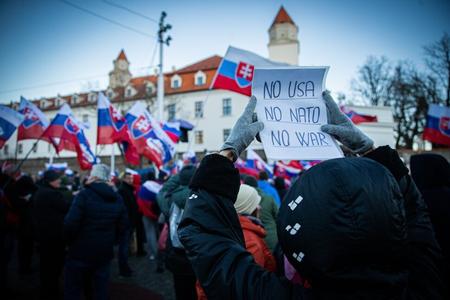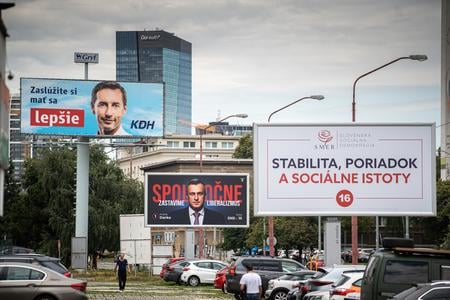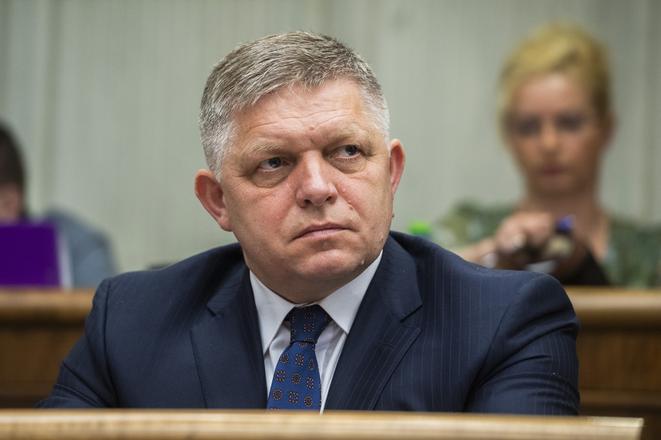The elections in Slovakia will not only decide who will rule the small Central European country, but will show whether the rejection of aid to Ukraine could become a mainstream political position in Europe, writes US newspaper The New York Times in regards to the upcoming parliamentary election in Slovakia.
In his report, author Andrew Higgins illustrates the impact of Russian propaganda on the country using what happened in the village of Ladomirová, eastern Slovakia.

From stalwart backer to neutral observer
In September last year, the Russian embassy spread a hoax about the alleged desecration of the graves of the Russian Tsarist Army soldiers. Although the police were quick to dismiss the fabricated claims, according to Higgins, the incident "highlighted Russia’s skill at fishing in Slovakia’s troubled waters".
The former village mayor tried to stand against the claims in the municipal election later that year, but ultimately lost to a candidate who opposes the aid to Ukraine.
The newspaper notes that Slovakia was the first country to send an air defence system and its old fighter jets to Ukraine.
However, less than a month before the September 30 elections, the Smer party and the far-right 'hostile' to the government in Kyiv are growing in popularity. Smer chair Robert Fico promised to stop Slovak arms supplies to Ukraine, condemned sanctions against Russia and railed against NATO despite the country’s membership in the alliance.
If Smer and the far-right succeed, it "would likely turn one of Ukraine’s most stalwart backers into a neutral bystander more sympathetic to Moscow".
In addition, "it would also end the isolation of Prime Minister Viktor Orbán of Hungary as the only leader in the European Union and NATO speaking out strongly against helping Ukraine".

Major player again
Guardian commentator John Kampfner also speaks of Fico in connection with Orbán. According to him, Fico "showers praise on Moscow and models himself on Viktor Orbán" and Slovakia could soon become Russia's newest ally.
The Guardian calls the return of Smer and especially Fico remarkable and notes that the latter spent his last years in the opposition calling President Zuzana Čaputová an American agent, condemning "Ukrainian fascists" and criticising the government for sending weapons to Ukraine.
"Fico is a major player once again and the politics he espouses is back in fashion. It is a measure of how messy politics has become, and how much faith in liberal democracy has been eroded here in the heart of Europe."


 Smer leader Robert Fico. (source: TASR)
Smer leader Robert Fico. (source: TASR)